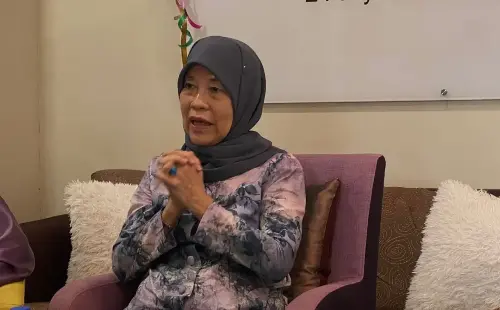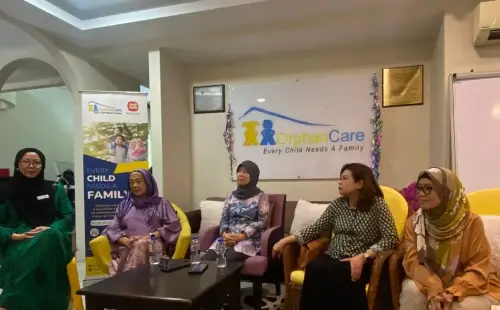
OrphanCare Foundation has revealed that 80 per cent of the cases it handles involve universities students who face unplanned pregnancies.

Chairman Tan Sri Faizah Mohd Tahir noted that many of these individuals seek support due to domestic challenges and the stigma surrounding pregnancies out of wedlock.
This non-governmental organisation (NGO) stated that they encounter a wide range of unique cases, with each situation presenting its own set of challenges.
While there are a few professionals including lecturers and engineers, the majority of those seeking help are young, unmarried, having financial difficulties and often from the Malay community, though there are also some from Indian and Chinese backgrounds.

This was revealed during a media appreciation session held at their headquarters which was attended by chairman Tan Sri Faizah Mohd Tahir and fellow trustees Datin Elya Lim Abdullah, Nor’aini Hashim, and Datuk Aminah Abdul Rahman.
In some cases, the pregnancy is kept hidden to avoid shame or the fear of being rejected by family members.
Financial struggles also contribute significantly, often leading these individuals to turn to OrphanCare for assistance.
Its Faizah stated that that in addition to the baby hatch initiative, OrphanCare has introduced the "First Mother Support Programme," funded by Bank Pembangunan.
"We call it the First Mother Support Programme, which offers a comprehensive and holistic approach to assist mothers in caring for their babies. This programme begins before pregnancy, extending through prenatal care and continues to offer support during the postnatal period,” she added.
Faizah said that over the course of 12 months, the programme offers counselling and guidance, helping mothers navigate their situation, even if their families are initially unaware of their circumstances.
She said in some cases, the programme helps break the news to families, offering emotional and practical support throughout the process.
Additionally, counsellors work closely with these families to help them understand the benefits of raising their own children, even when faced with the challenges of unexpected parenthood.
OrphanCare also works closely with the Department of Social Welfare (JKM) to navigate the legal aspects of adoption. Faizah emphasised that while the organisation cannot facilitate adoptions on its own, JKM plays a crucial role in making reports and filing petitions in court.
She added the process can be lengthy, especially in cases involving stateless children from the baby hatch. While these children are often adopted, it can take years for them to receive citizenship, a challenge OrphanCare continues to address.
OrphanCare's mission also extends to preventing baby abandonment. The foundation offers programmes that encourage birth mothers to keep their children, even in difficult circumstances. In some cases, after counselling, mothers who initially planned to abandon their babies choose to raise them instead.
"Initially, these were mothers who were raising their children without the support of a father.
“However, after participating in our sessions, many chose to marry and raise their child together.
“One of our main goals is to facilitate their marriage and provide ongoing support as they build their family,” she said.
Ultimately, the foundation aims to prevent the heartbreaking cases of babies being abandoned in unsafe places, such as trash bins or rivers, by providing a safe, supportive environment for mothers and children.
This approach has saved countless lives and provided an alternative to desperate measures.
Through its programmes and collaborations, OrphanCare continues to make a significant difference, not only in rescuing children but also in empowering families and advocating for better legal and social support systems.
